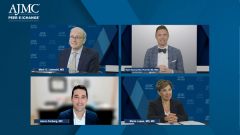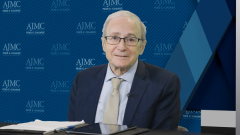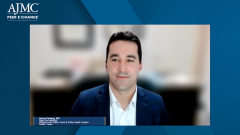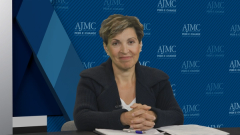
Final Thoughts on Generalized Pustular Psoriasis
A panel of experts provide their final thoughts on generalized pustular psoriasis, the treatment for this disease, and the impact it has on patients.
Episodes in this series

Ryan Haumschild, PharmD, MS, MBA: This has been such a great discussion. Thank you all for this informative discussion on generalized pustular psoriasis [GPP]. Before we conclude, I’d like to get final thoughts from each of you. Dr Lopes, can I have your final thoughts on the treatment of GPP?
Maria Lopes, MD, MS: For a life-threatening condition, it’s exciting to hear that hopefully, we have disease-modifying drugs that are inducing not just a better response, but durability of that response and maybe even remission. And hopefully, we can keep patients out of the hospital, or shorten their stay if they are in the hospital, and reduce the severity of the illness, and maybe transform it, if not cure it, transform it into a much milder form.
Ryan Haumschild, PharmD, MS, MBA: That teamwork and transformation between the payers and providers is something I see us working together on as we see more of these biologics. Thank you for those thoughts. Dr Farberg, any final thoughts from you?
Aaron Farberg, MD: I’d say that as a physician, one of the most rewarding feelings or moments is not just improving the lives of our patients, but actually saving one of their lives. When you discuss GPP and then you discuss the treatment available, spesolimab, this is an opportunity not just for dermatologists, but clinicians everywhere to be that champion and save people’s lives.
Ryan Haumschild, PharmD, MS, MBA: Excellent and well put. Dr Lebwohl, I’m going to leave the final word for you.
Mark G. Lebwohl, MD: I will say one of the things that the manufacturer did very well is that within days of the approval of the drug, someone appeared at my office and gave me his name and phone number, and it’s in my phone under spesolimab, so that when I need to get the drug, I call him. He gets it for me right away. I gave his phone number to Erin Boh, [MD,] at Tulane [University School of Medicine], and to Boni Elewski, [MD,] at the University of Alabama, who also use that source to get the drug, again, right away, and the patients are better in 1 day. We really saved those patients’ lives. We went into this to make patients better. As Aaron said, we don’t just make them better, we save their lives, and it makes you feel good.
Ryan Haumschild, PharmD, MS, MBA: That’s what the outcome’s all about. The partnership with industry, team members, and how do we improve the lives of our patients and do it in a timely manner?
Well, thank you all, and thank you again to our viewing audience. We hope you found this AJMC® Peer Exchangeto be useful and informative.
Transcript edited for clarity.
Newsletter
Stay ahead of policy, cost, and value—subscribe to AJMC for expert insights at the intersection of clinical care and health economics.








